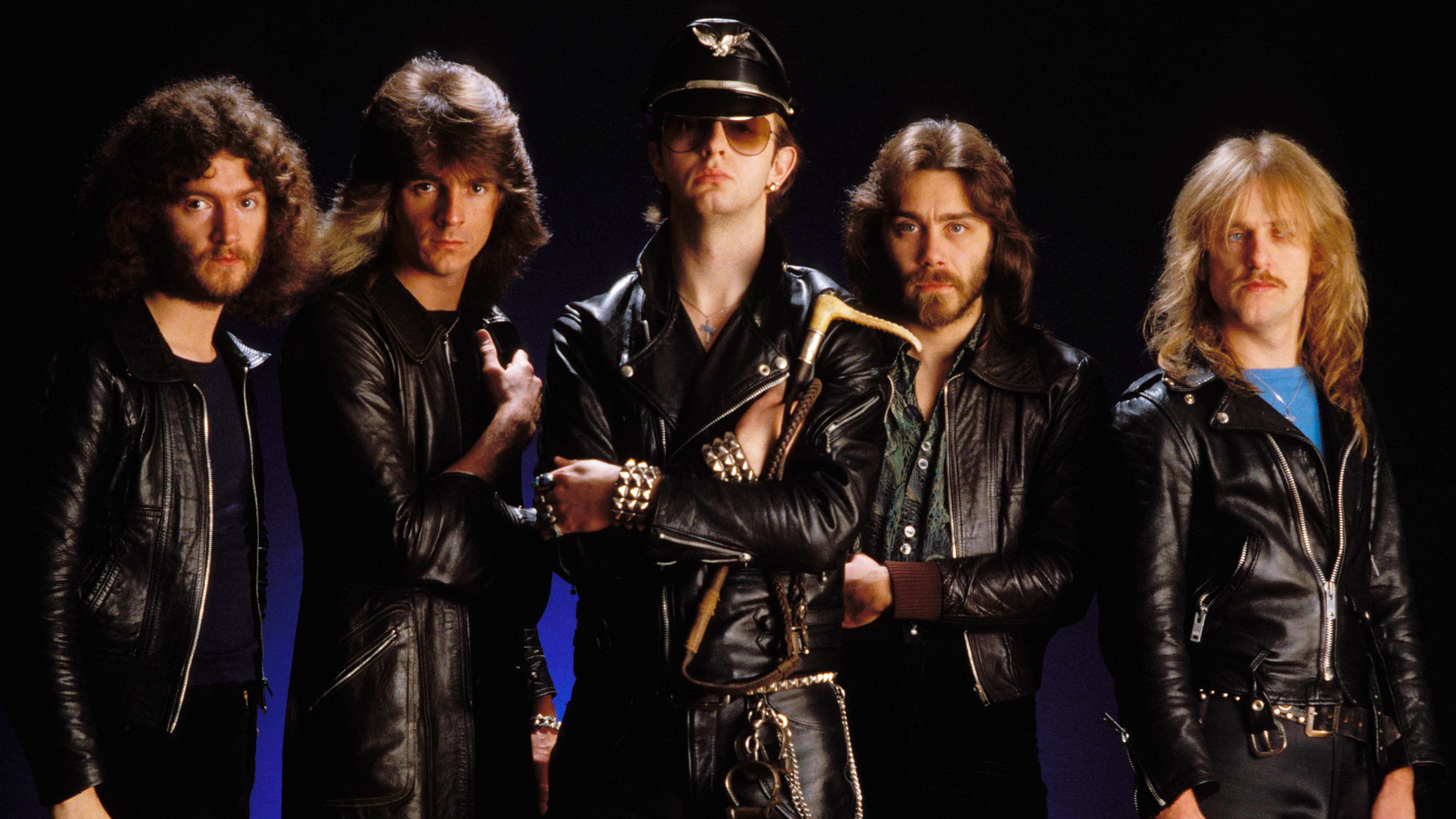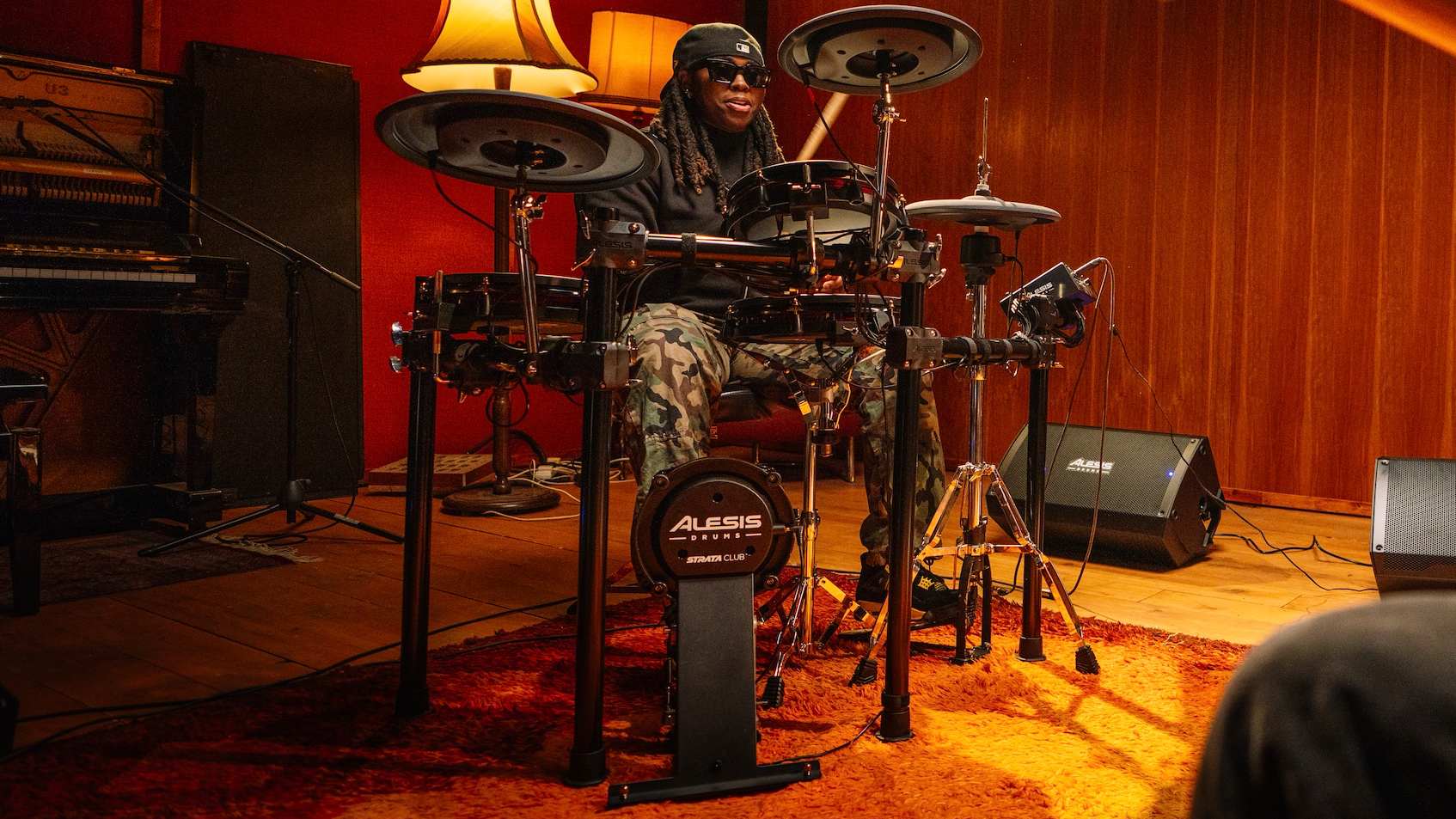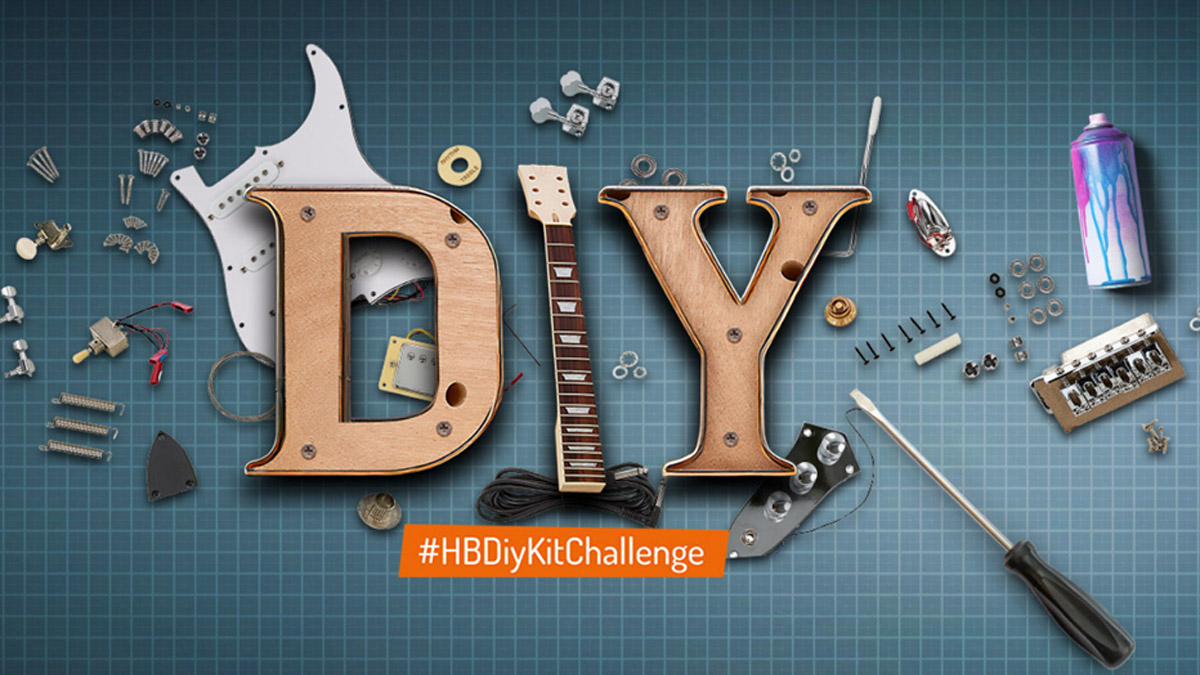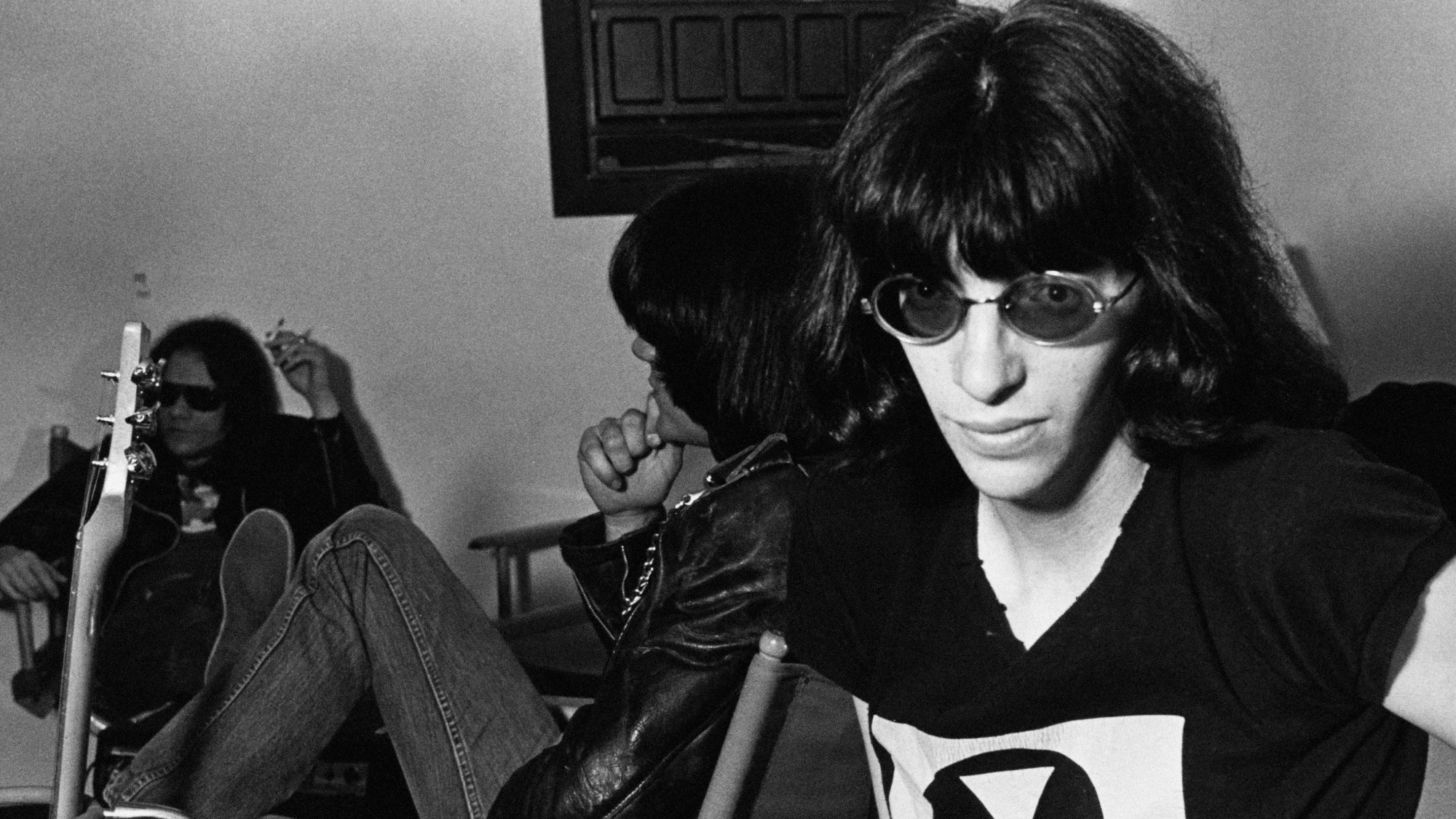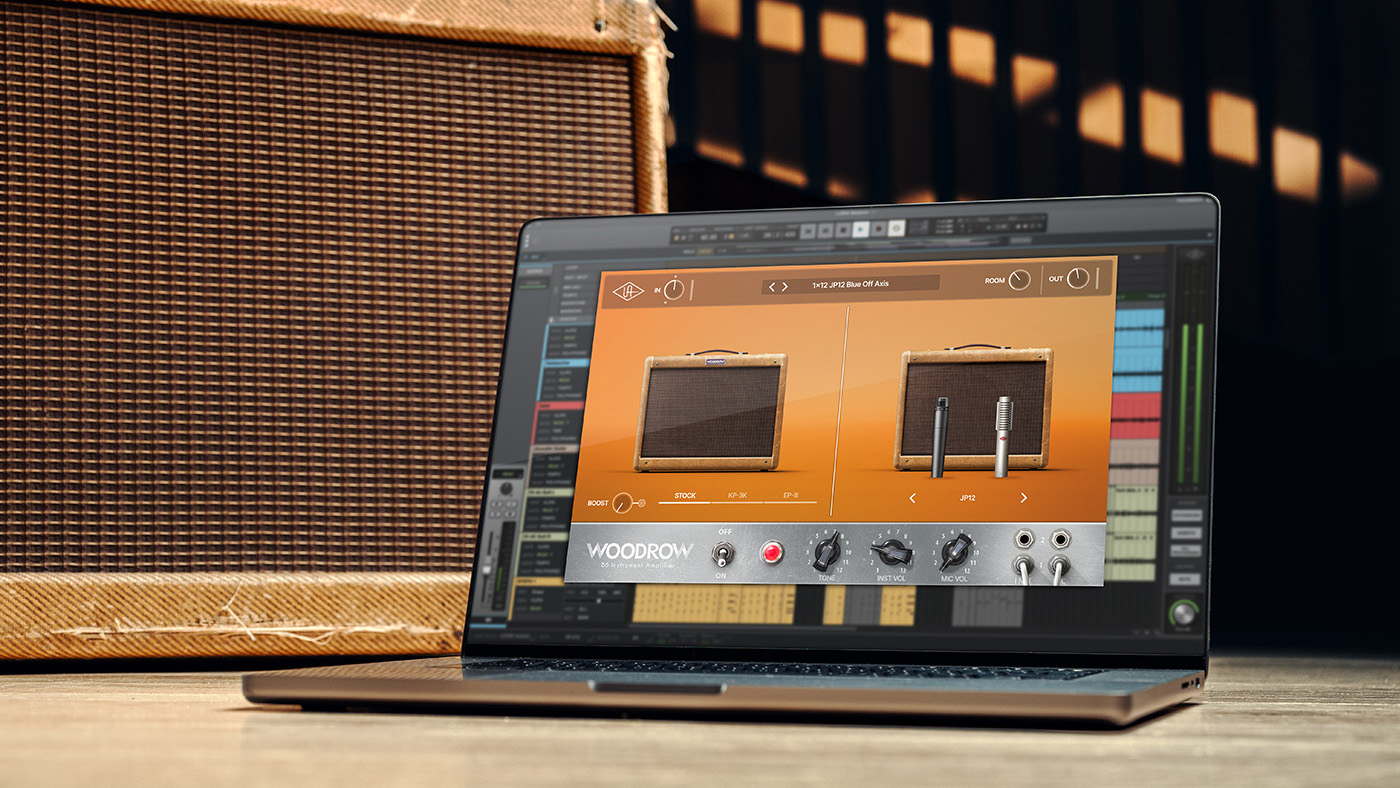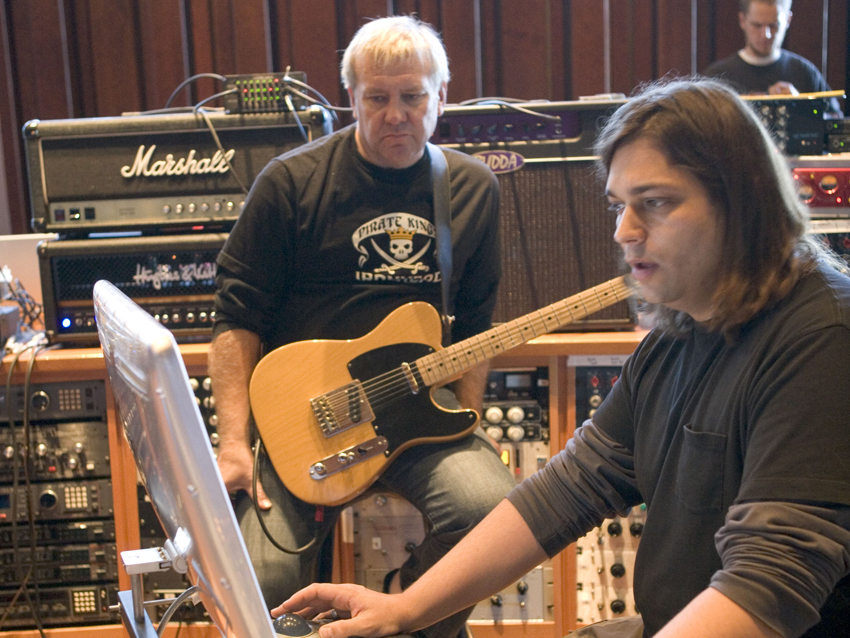
Interview: producer Nick Raskulinecz on Rush's Clockwork Angels
“Part of my responsibility as a producer – the biggest part of my job, really – is to be there for the artist and to help them see their vision through," says Nick Raskulinecz. The Grammy-winning producer, who first worked with Rush on 2007's Snakes & Arrows, reconvened with the group in 2010 to begin sessions for Clockwork Angels, the sterling concept album masterpiece which will be released tomorrow, 12 June.
"This album was Rush’s vision," says Raskulinecz. "It wasn’t mine. I was there to make sure it was played as brilliantly as they could play it, sung as high as Geddy Lee could sing it, and have the guitar solos bring me to tears.
“I feel like we achieved all of those elements. There’s so much emotion that we captured, just total from-the-gut expression. Three dudes making music – that’s Rush!”
As part of our comprehensive coverage of the release of Rush's Clockwork Angels, Nick Raskulinecz talks us through the album track-by-track on the following pages.
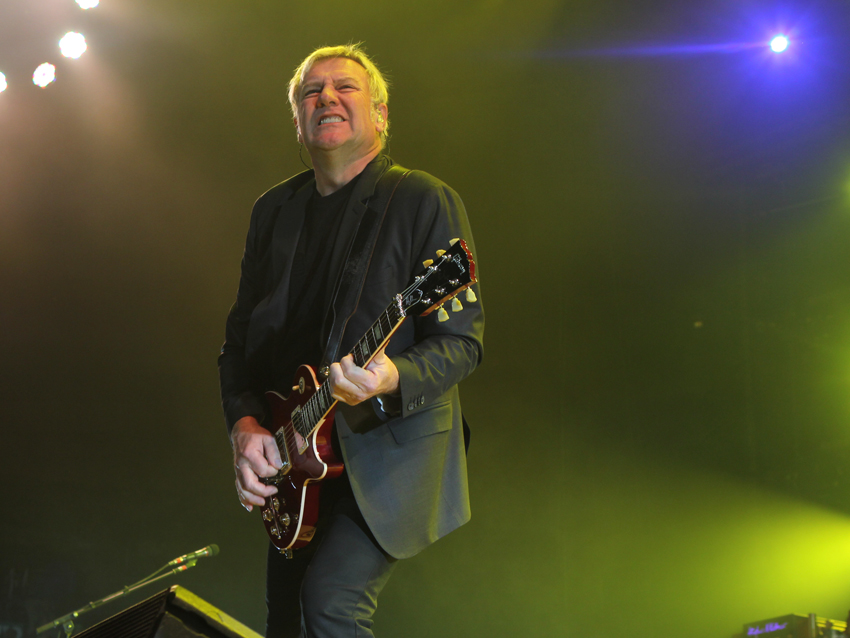
Caravan
“This might have been the first song that I heard. The riff is just amazing. Like it is with so many Rush songs, it’s all about the energy of Alex, Geddy and Neil playing together. When you’ve got that, you’re off, you’re flying!
“There was a demo of it, but we changed a lot of things around for the actual recording. I’m not sure if there were actual drums on the demo. Things were happening pretty quickly.
“For Alex’s guitar tracks, we used his Les Paul Goldtop and his tobacco sunburst 335. We put those through a Marshall and a Bogner.
“We recorded in Nashville, and the whole thing took only two days – drums, bass and guitars in one day, vocals the next. Even though we did Caravan and BU2B first and then took a break for the band to go on tour, the energy of those two songs carried through the rest of the record.”
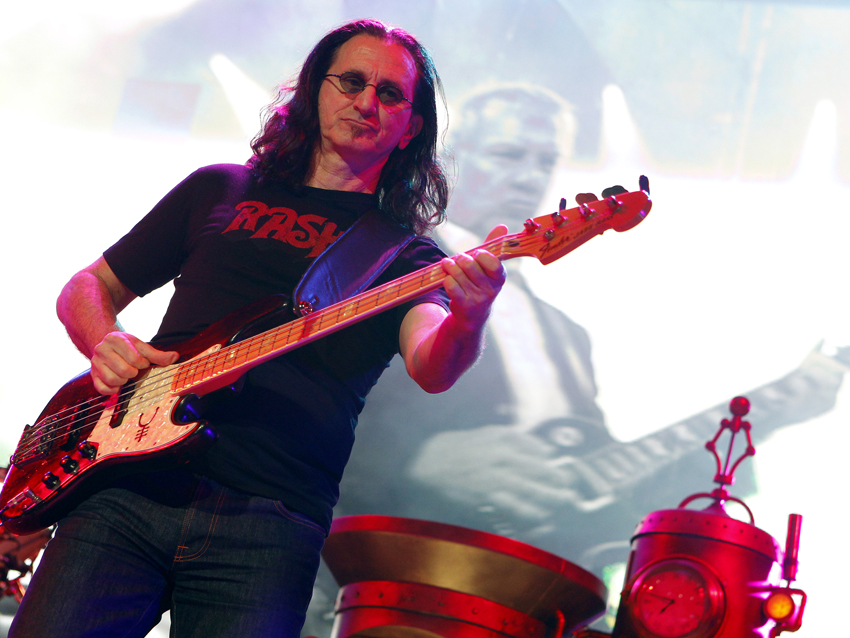
BU2B
“It’s a heavy-hitter. It’s dark and a little out of character for Rush. It went through something of an overhaul from the version that was put out last year. We added the intro section that Neil always envisioned. Alex and Geddy actually recorded that in their hotel room.
“Like Caravan, this one was quick – we spent a day on the drums, then immediately did the bass and guitars. After that, we did overdubs. We did Taurus pedals, and we did a theremin, too. That really cool, squiggly, ascending part in the middle is Geddy playing a theremin.
“They had one in the studio, just lying around in Blackbird – it’s such an amazing place, the things you find there. So we took the theremin, plugged it into an amp, put some delay and a phaser on it, and he did a solo. I think he might have played one back in the ‘70s. His performance is cool. He did it once and it worked out great.”
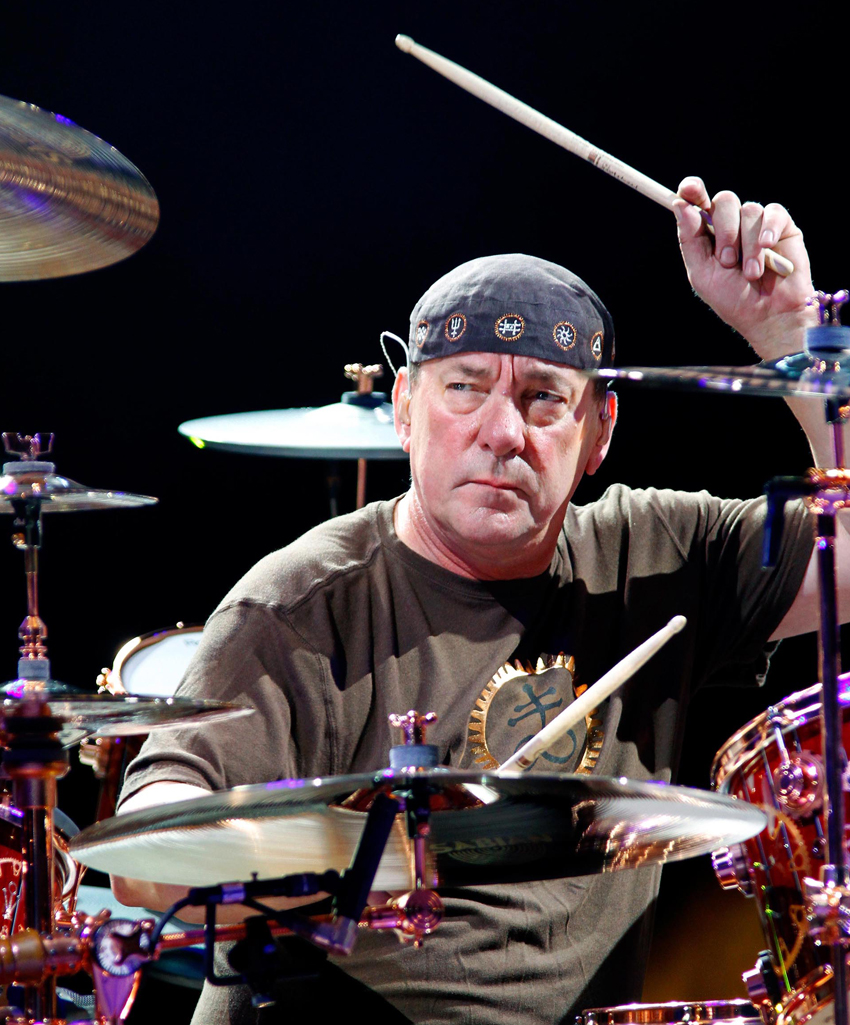
Clockwork Angels
“What an amazing song! It’s the epic of the record. It encapsulates so many different sounds and styles of Rush.
“The drums on the demo were pretty much one beat throughout, so that was changed around considerably once Neil got to it. Don’t get me wrong: Al does great demo drums. Neil always calls him the secret weapon of the band, and quite often Alex’s ideas for drums will get used.
“Neil usually prepares very hardcore for his tracking – everything is written and scripted out, so that when he gets into the studio, he knows what he’s going to do and he just does it. On this record, he played from his gut. There wasn’t one pre-written drum part on this album.
“The first time Neil played to Clockwork Angels was when he sat down in the studio with his headphones on and went for it. It was amazing to watch it all happen. A lot of the drum parts on this album, and especially this song, he only played one time. There weren’t multiple, multiple, multiple takes.
“Alex’s guitar solo is from the demo. It was just him in a room playing by himself. There’s three or four solos like that on the album.”
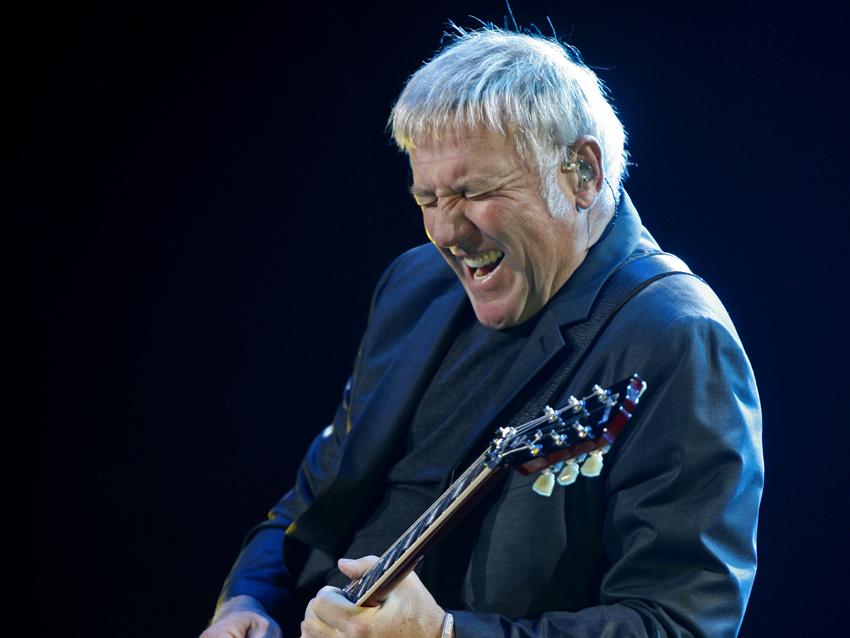
The Anarchist
“One of my favorites, but I could say that about all the songs. To me, it’s all about the riff, and this riff takes me back to the old days. That was one of the cool things about working on this record, helping Rush to know that it was OK to be like this. ‘You guys can do this. You guys did it a long time ago, you can do it again. You own it!’
“There’s a lot of interplay happening between everybody. There was a demo, but we added a keyboard and the high strings – it morphed. Vocally, it was about getting Geddy up in that high register where he belongs. His energy level is pretty cool here.
“I’ve said this for years: Alex Lifeson is the chameleon of rock guitar. He’s got so much feeling. He brings me to tears when he plays; in fact, he’s in tears while he’s playing it! Some of his solos were from the demos, some he played in the studio a few times, and there were a few that he tracked multiple times. In every case, he had pure emotion.”
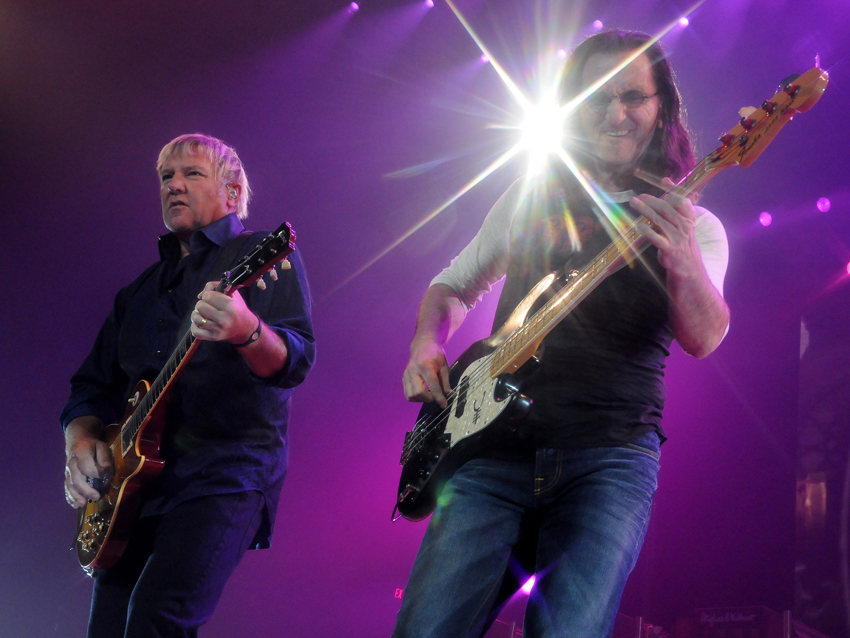
Carnies
“This solo is so cool because of the carnival atmosphere, and that’s all Al. He made those sounds and did all that brilliant guitar work – he had such vision and so many ideas. It was pretty inspiring seeing him follow it all through.
“Geddy sang the song, and after he finished, it was time to come up with the soundscapes. We have three guitar tracks – one on the left, one on the right and one in the middle – and they all have different clean amps with tremolo, panning effects and phasers, Leslie speakers and filtered little sounds.
“Alex doesn’t really discuss what he’s thinking before he does it. He’ll lay his parts down, and then he’ll call me into the room. I’ll either say, ‘That’s fucking amazing!’ or ‘It can be better’ or ‘It’s done, it’s perfect.’ Nine times out of 10, I’ll say, ‘It’s perfect.’”
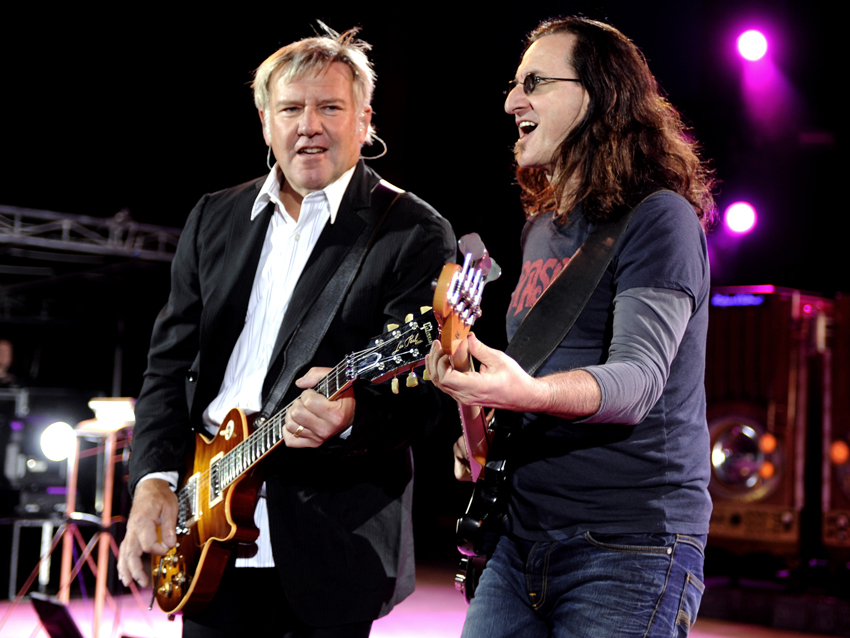
Halo Effect
“A really cool ballad, kind of a reflective moment of the character in the story. We did a full-on string session with a composer named David Campbell. An incredible experience.
“We always knew we were going to put strings on the song. Alex wrote and played demo strings on a keyboard. At first, we thought about using that, but then we decided to go for it and have a real string section.
“Alex played his Gibson Dove acoustic. We two tracks, miking him with a U47 tube mic. I put the mic about three feel away so you can get the nice body of the guitar. It’s a pretty gorgeous sound.”
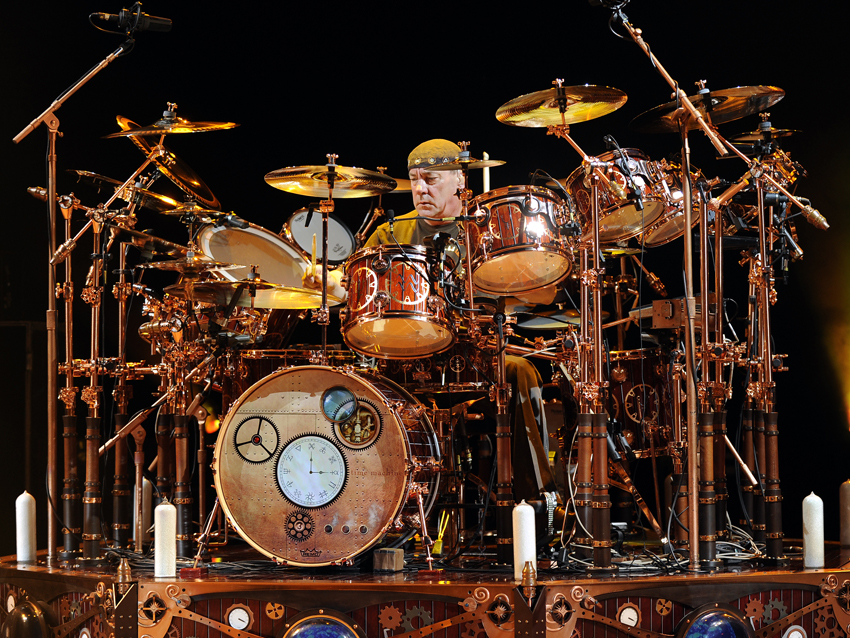
Seven Cities Of Gold
“Another epic riff. It sets the tone for the whole song. You know, there’s nothing in the world like a fucking cool Rush song, and that’s what this it.
“There’s a lot going on, so as a producer, I want to make sure that we don’t lose the song. I love the way it builds up, coming out of this chaotic funk, and then you have Neil just slamming. It makes me want to drive fast.
“We created a lot of spacey stuff in the middle section. For his solo, Alex played live off the floor. We put him out in the room with his headphones on, and he was right in front of his amp. We wanted to get the screaming feedback coming at him. I think he nailed it in one take. I’m so privileged to have witnessed it – and many moments like it.”
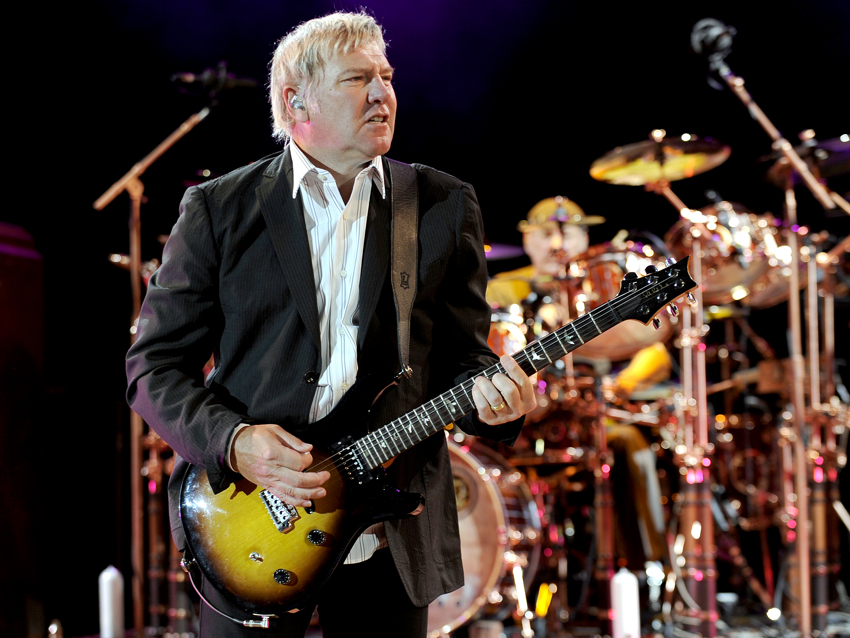
The Wreckers
“Just talking about this song chokes me up. It’s got the spirit of the ‘60s and ‘70s, a real purity to it. The song didn’t exist until we were in the studio – there was no demo of it. Geddy was in the writing room, playing guitar, and Alex came in and picked up the bass. So the song was written with the two of them playing what aren’t their main instruments.
“It’s probably what gives it such a different feel. I tried to get the two of them to switch for the tracking – Alex on bass and Geddy on guitar – but they decided to stick to their designated instruments.
“The tune is so big, it’s got such bounce and swing, but it took some effort. The guitar part in the verse was probably the hardest thing on the record for us to find. Alex had some difficulty playing the part Geddy had written – it was great, but it didn’t feel right to him. He had to search for the right part, and it took all day with me going, ‘Nope, that’s not it… Nope, that’s not it.’ Finally, he stumbled onto a picking figure, and Geddy and I just stood up and went, ‘That’s it! That’s the part.’ The tune came together real fast after that.
“It’s a very melancholy song. It’s almost mournful but in a positive way. [sings] ‘All I know is that sometimes the truth is contrary/ everything in life you thought you knew…’
“I think the song is about trust. See, the Wreckers were people who would make fake lighthouses on the coasts and the shores, and they would guide merchant ships into rocky waters in order to wreck them so that they could plunder the ships.”
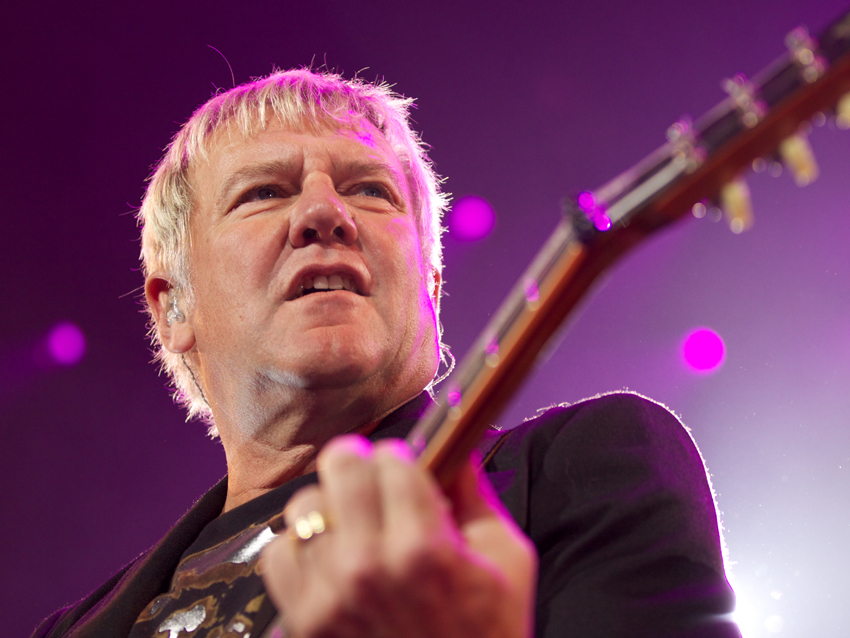
Headlong Flight
“This is the song I was waiting to hear for a long time. The riff, the vocals, the drumming, the guitar solos, the energy – everything that makes Rush Rush is in this song.
“It’s pretty long, and there’s a lot of parts in it. There were no drums on the demo, it was just a click – a click, riffs and scratch vocals. How do you write drum parts on a drum machine to something like this anyway? You don’t – you just put Neil Peart in the room.
“In the chorus, there’s a vocal line underneath the main vocal, and it’s Geddy’s scratch vocal from the demo. He didn’t have the words yet, but he had the melody. It’s a pretty cool effect. It was left on by accident, and at first I thought it was a guitar part, but I grew to love it. It creates such a cool vibe.
“And there’s one more example of a one-take guitar solo: Alex did it in the control room; he was plugged into his wah pedal and had the monitors cranked up really loud. We were all sitting there watching him. He played it one time, put his guitar down and he was done. It was perfect.”
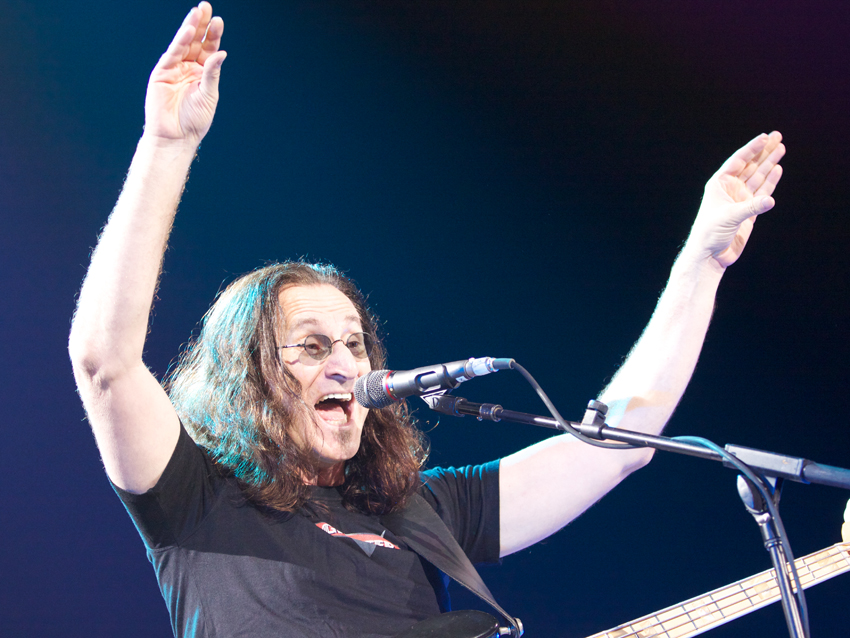
BU2B2
“It’s completely different from the demo. The only thing that is the same is the vocal, and that was originally sung to a different piece of music. Because of that, it’s got a really cool, weird feeling to it.
“There’s no guitar or bass on it. We constructed it using different elements of instruments. Alex wrote a great string part and put keyboards on it.
“It’s kind of a segue piece. Geddy’s vocal is almost bluesy on it. It’s pretty special.”
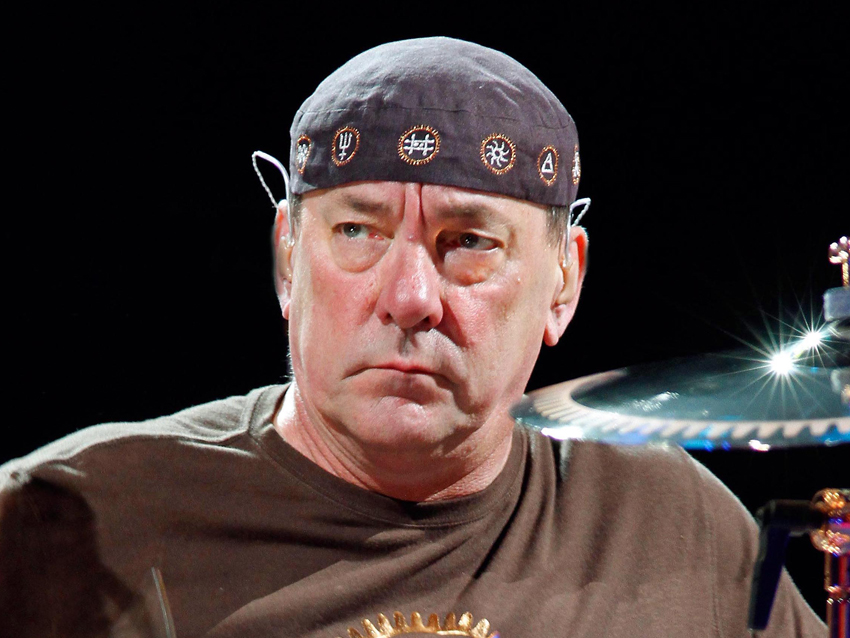
Wish Them Well
“This was the hardest drum track of any of the songs to get. Neil doesn’t really play double-time, so this was taking him out of what he usually does. That wasn’t always the idea; in fact, that was me trying to keep the energy up. The tune wanted to move, and the riff wanted to be big – it didn’t want to be mellow or straight.
“Neil’s the consummate pro, man. He fucking dug in – sat down on his throne, picked up his sticks and made it happen. He’s the dream for a producer to work with. I was throwing stuff at him that an octopus couldn’t play, but he could.
“I know I keep going back to riffs, but the throb of this riff is so huge, and now the crack of the snare and the smack of the bass drum match it beautifully. We had to find that. It took all day, but it was worth it.”
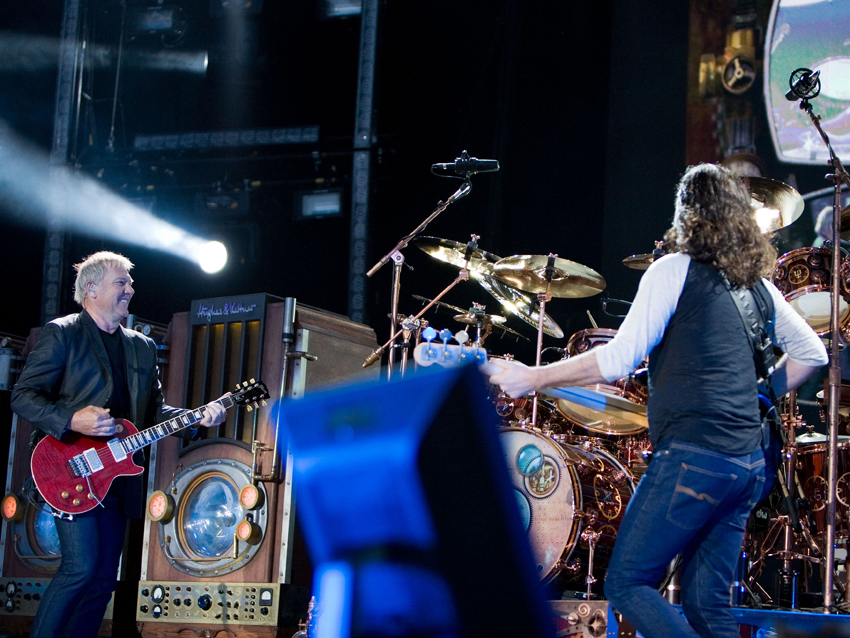
The Garden
“This was in the first batch of songs, and it came pretty easily. It’s probably the most beautiful song on the album. It’s reflective. It’s the end of the journey, and it’s got the long outro. Originally, we were going to fade it out, but it has such power the way it is that we decided against it.
“We were always thinking of holding the drums off until after the first chorus. Neil is doing side stick – a really nice dynamic.
“The chameleon of rock, Alex Lifeson, wrote a really gorgeous piano part and demoed it. We had one of Geddy’s really good friends [Jason Sniderman] come in and play it for real on a nice, beautiful Steinway.
“That’s the demo guitar solo. What you’re hearing is Alex by himself. He’s at Geddy’s house, it’s late at night – I think Geddy was sleeping on the couch – and he’s just playing a guitar solo. When you get something that great, it’s not a demo anymore. There wasn’t even a discussion to try to do it again. It’s up there with the solo to Limelight.”

Joe is a freelance journalist who has, over the past few decades, interviewed hundreds of guitarists for Guitar World, Guitar Player, MusicRadar and Classic Rock. He is also a former editor of Guitar World, contributing writer for Guitar Aficionado and VP of A&R for Island Records. He’s an enthusiastic guitarist, but he’s nowhere near the likes of the people he interviews. Surprisingly, his skills are more suited to the drums. If you need a drummer for your Beatles tribute band, look him up.
"I said, “What’s that?” and they said, “It’s what Quincy Jones and Bruce Swedien use on all the Michael Jackson records": Steve Levine reminisces on 50 years in the industry and where it’s heading next
“I’m looking forward to breaking it in on stage”: Mustard will be headlining at Coachella tonight with a very exclusive Native Instruments Maschine MK3, and there’s custom yellow Kontrol S49 MIDI keyboard, too
"I said, “What’s that?” and they said, “It’s what Quincy Jones and Bruce Swedien use on all the Michael Jackson records": Steve Levine reminisces on 50 years in the industry and where it’s heading next
“I’m looking forward to breaking it in on stage”: Mustard will be headlining at Coachella tonight with a very exclusive Native Instruments Maschine MK3, and there’s custom yellow Kontrol S49 MIDI keyboard, too




